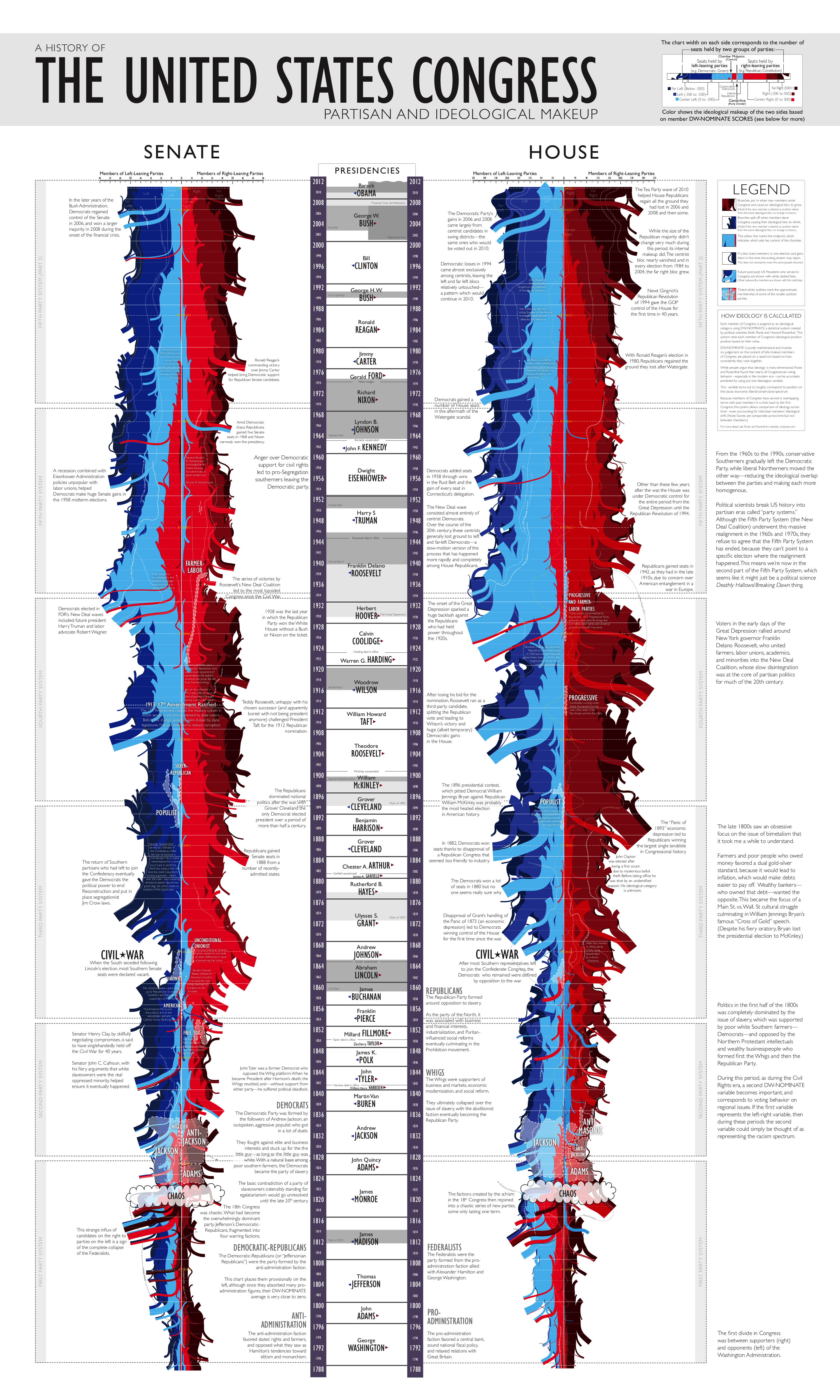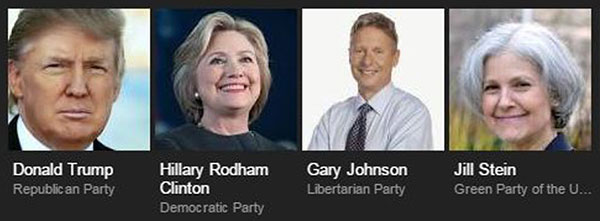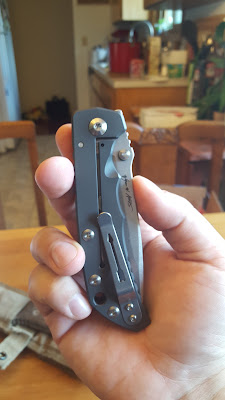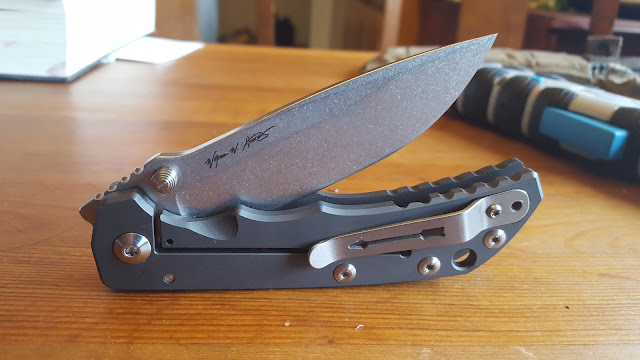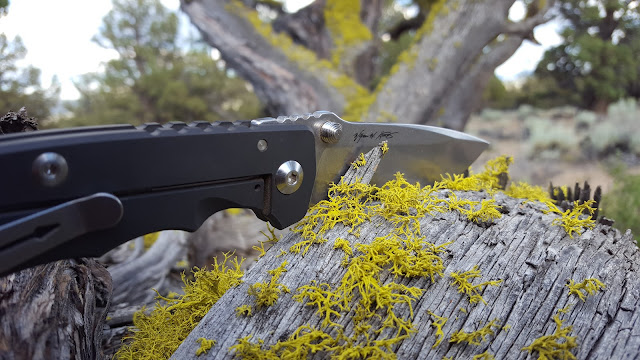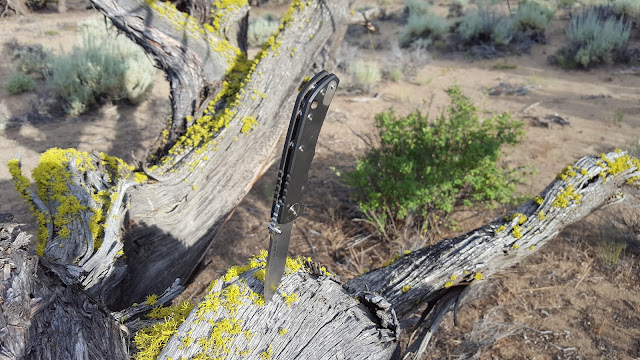I usually avoid really sharply partisan posts in this blog, but I feel like I have something to say. Plus, at this point, everybody has their mind made up about the Presidential Race. I don't imagine I will change any minds, but I have things I want to say.
--------------------------------------
It seems like there have been a lot of things that have upset me lately. It makes it hard to figure out what I want to write about when everything just seems to pile onto the mass of anger and sorrow I have been feeling. The acquittal of the
Malheur Occupiers a few days ago certainly triggered a major surge of anger for me. The idea that armed occupiers who had seized control of the wildlife refuge for 40 days, while damaging public property, stealing government equipment, damaging archaeological sites, and interfering with curated archaeological materials, all while publicly documenting their actions and publicly proclaiming their intention to permanently take control of the refuge away from the government could somehow be found innocent by a jury of their peers boggles my mind. When the handling of the Malheur Occupiers and their subsequent exoneration is compared with the ongoing
#NoDAPL protests and the stunning relative lack of media coverage as
hundreds are arrested while trying to protect water and cultural sites the irony takes on the aura of a surreal caricaturization of injustice rooted in institutional and individual racism.
The acquittal of the Malheur Occupiers makes me question the integrity of our legal system.
Have the forces of division and disunity in our culture become so pervasive that even the matter of guilt in the commission of publicly documented crimes can be denied by a jury? It's as if the nature of reality is a partisan construct. That is the only way I can understand the verdict.
The in-your-face racism of the response to the Dakota Access Pipeline protests makes me question whether our culture is progressing to a more racially equal society.
The apparent lack of interest among those outside of indigenous circles, the brutality with which the protesters are being treated, and even the (unsubstantiated) law enforcement claims that the protesters have been doing things like shooting arrows at helicopters is amazing. The worst part is that the total lack of real media coverage means that all that can be known about the situation is essentially competing unsubstantiated claims and social media memes.
---------------------------------
But I think that the crescendo of anger, sorrow, and frustration that I have felt over the last few days was not just in response to the news, it was also rooted in a deeply personal space that may seem strange to some of my readers: For the first time in my voting life I did not vote for any Republicans.
I'm sure that for many people that would not feel like a cause for sorrow, but for me it is. I couldn't bring myself to vote just for Democrats, but I feel that there is no morally justifiable way to vote for Republicans at this point. Even as the Republican party has steadily lurched toward Constitution shredding institutionalized corporatocracy while flogging the pony of theocracy, I have been able to feel like there were enough individual Republicans trying to do good work for good reasons, that I could justify voting for individual Republicans. But this election cycle has changed that for me.
Growing up, and throughout my young adulthood I always thought of the GOP as the grown-up party. Yes, I disliked the explicit linkage of Christianity and politics (particularly linking Christianity with economic and social policies that are the diametric opposites of those espoused by Jesus), but I believed (and still believe) that empowered individuals, limited government, and personal responsibility are fundamental keys to a free society. And I think that freedom is a virtue. Despite the cleaving of the GOP to Evangelical Christianity, I still thought of the GOP as the party of limited government, prudence, and personal responsibility. So even though I am a centrist, and have never been totally on board with modern Republican planks, I retained a fondness and partiality to the Republican party. I'm not a conservative, but there are certainly conservative values that I feel at least partial agreement with. If you want to understand the kind of conservatism I value,
this article by Russell Kirk is a good example.
That was why the George W. Bush years felt like such a betrayal. It wouldn't have felt like a betrayal for the Democrats to shred the Constitution, engage in wars of aggressive choice, and tolerate massive graft because that would have been more in line with what I would have expected from the party of Tammany Hall. But from the Republicans it felt even worse. Still, I could vote for individual Republicans. I looked at people like Senator McCain and thought, there are still principled Republicans committed to good governance who understand the need for compromise.
Then I felt deep conflict in 2008 when the candidate I had wanted for president in 2000, McCain, finally got his chance. But I felt that the leadership of the Republicans had taken the country into dire straits, and I wanted a regime change. Sadly, Clinton did not win the 2008 nomination, but I was sure that Obama would still be better than four more years of Republican evisceration of the Constitution, rampant secrecy, and executive overreach. After all, he promised to be more open, to pursue compromise, and to close Guantanamo.
In 2008, for the first time ever, I voted for a major party candidate for President of the United States of America. I voted for Obama. For change. Instead I got Obama. Who did not close Guantanamo. Who did not curtail executive overreach, but instead doubled down on signing statements and executive actions. Who did not govern more openly, but instead became the most secretive president in history. Who did not rein in the transgressions against the rights of US citizens and shredding of the Constitution represented by the Patriot Act. Who did not end the practice of Presidents waging unending wars at the sole discretion of the executive against nations that do not threaten us, instead he broadened the unilateral war making of Bush II into new countries and added assassination via drone to the US arsenal. In short, Obama doubled down on everything that I had hated about Bush II.
But it didn't feel quite like a betrayal the same way. In 2012, when the GOP nominated a candidate that promised no improvement on anything I cared about, reactive rollbacks of social liberties, and an even more irresponsible economic policy, I returned to my roots and voted for Johnson (Libertarian, my usual POTUS vote).
Yet I was unprepared for the 2016 primaries. To make a long story short, the 2016 Republican field was narrowed down to a choice between a toddler and a fascist. Cruz's whole platform is that he won't cooperate with anyone and he doesn't compromise. That isn't conservatism, that is being a toddler. I have a toddler at home, I know what I am talking about.
Then there was Trump. Surely Trump had no chance. This was America. We fought against people who proposed ethnic cleansing as government policy. We stood for religious freedom. We stood for democracy and decorum. We were the moral compass, the shining city on a hill. We were America, and America was exceptional. There is no way that the GOP could ever nominate a candidate who stood in opposition to every value I had ever associated with American virtue.
----------------------------------
The nomination of Trump has shaken my belief in
American exceptionalism.
If a man like Trump could become a major party candidate then the US was not exceptional. We have no moral core to our beliefs that keeps us from becoming endlessly debased, corrupt, and violent. Could it really be true that there is no moral and spiritual core to the American people that makes us any better than the forces of authoritarianism, totalitarianism, and ethnic nationalism we once fought so hard against?
----------------------------------
I am not quite ready to abandon the idea of American Exceptionalism. I still believe in the values of freedom, democracy, and personal liberty, and I still believe that the US has a singular importance in promoting those values and opportunities for all of humanity. Let's be clear, I don't believe that the US has ever lived up to those values fully. Nor do I believe that other nations are incapable of such values or leadership. But I do believe that the US has had a unique spirit of always trying to perfect our union. A spirit of always trying to live up to our values.
Because I do not think that the values that we must try to achieve are truly achievable. Perfect freedom, equality, democracy, and personal liberty are ideals we strive for. But one of the keys to truly becoming better, as individuals or as a country, is to always have our guiding principles be aspirational. If you can actually live up to your own standards, then there is no room to improve yourself. You cannot become better than what you are unless you accept your own imperfection and then try to improve your flaws. Your reach must always exceed your grasp if you want to become better.
And that is what I feel is the truly exceptional and uniquely American value that makes us exceptional, our reach.
The very first line of the
US Constitution is "We the People of the United States, in Order to form a more perfect Union..."
(The full Preamble: We the People of the United States, in Order to form a more perfect Union, establish Justice, insure domestic Tranquility, provide for the common defence, promote the general Welfare, and secure the Blessings of Liberty to ourselves and our Posterity, do ordain and establish this Constitution for the United States of America.)
The first line of the founding document of our government and nation is a statement of a People reaching for the ungraspable.
You cannot make things better unless you first acknowledge that they are not perfect. This means on the one hand that hypocrisy is essential to improvement. We cannot demand moral perfection as a prerequisite of those trying to make things better. That also means that denying problems is an obstacle to the betterment of our society. You can't fight racism if you deny it exists. You cannot repair the relationship between the public and the police if you deny that there are problems on both sides. And you can't improve the public's relationship with the government if you deny the need for a government.
That for me is the heart of American Exceptionalism, and that is what I have believed has made our nation great. It is not wealth or military might that makes America great. It is not even, as Hillary likes to say, our goodness. What makes America great is constantly trying to be better than we are. That means that it is our patriotic duty to acknowledge our imperfections, but the belief that we CAN be better is what allows us to in fact become better.
-------------------------------------
Donald Trump does not believe in American Exceptionalism. He is not alone. I have many friends and colleagues who no not believe in American exceptionalism. In fact I expect that I will catch a lot of flack from my Anthropological peers for defending the idea. But I do believe that the US is special, and historically, the political home of that belief has been the Republican Party.
But no more. The GOP has nominated a candidate who disbelieves in the greatness of our society.
Donald Trump wants to bar Muslims from entering the country. He wants to bar almost a quarter of the world's population from the US. That is clearly in direct contravention of the first line of the first amendment: "Congress shall make no law respecting an establishment of religion, or prohibiting the free exercise thereof." The US certainly does not have a spotless record when it comes to freedom of religion, but to my knowledge Trump is the first candidate to run on a platform that includes doing away with the First Amendment protection of religious liberty.
But that is not what scares me most about Trump. Trump's promotion of ethnic nationalism scares me much more, and that starts with another constitutional amendment that Trump wants to do away with, the 14th amendment. The first line of that one is "All persons born or naturalized in the United States, and subject to the jurisdiction thereof, are citizens of the United States and of the State wherein they reside." Trump wants to get rid of birthright citizenship. The worst part is that this is not just Trump, it seems that much of the Republican party has decided that American-ness is an ethnically derived quality. Just witness the rhetoric around the idea of an "Anchor Baby." The very concept of an anchor baby is that such children are not true Americans. In an immigrant nation that is a pretty astounding claim. If that idea had held currency in the past then no one who is not of Native American ancestry would be a real American. The idea that there is some group that can be considered "real Americans" is the very heart of ethnic nationalism.
Nationalism is the idea that a nation is made up of
a people (As opposed to being made up of people). A separate, defined people, different from all others in the world. For example, the Jewish People, the Ethiopian People, the German People, the Chinese People, etc. The idea is that each of these peoples should have their own country independent of other people. In order for there to be "real Americans," rather than just American citizens, it means that there has to be a distinct people who make up the entirety of the American People, and that those American People have the right to exclude all others from the nation.
For an example of this idea in action, consider Trump's claim that a US born judge was incapable of judging him fairly because he was a Mexican. Trump believed that the ancestry of the judge precluded him from being an American.
But Trump does not simply stop at the promotion of ethnic nationalism. What I find scariest about Trump is that he actively promotes ethnic cleansing, and his supporters love him for it.
Make no mistake, when you claim that Mexican is an ethnicity that is not American, and then you call for a force to be created dedicated to the rounding up and deportation of "illegals" you are calling for ethnic cleansing. There is no two ways about it. And there is no moral justification for ethnic cleansing.
--------------------------------------
When Trump calls for a wall between the US and Mexico, he is calling for a physical manifestation of the other-ness of Mexicans. A physical proof that those people belong on that side, and we belong on this side.
When he calls for a halt to Muslims entering the US, he is calling for an explicitly religious partitioning of humanity. And he is making the claim that Americans inherently cannot be Muslim.
When Trump says that he will make "America Great Again" he is arguing that the root of America's greatness is ethnic in nature. That there is something in the American ethnicity that has been contaminated and debased by immigrants and Muslims. And he is arguing that the way to restore American greatness is through cleansing America of those ethnic contaminants.
------------------------------------
Of course, no scapegoating ethnic-nationalist ethos is ever satisfied with just labeling people as others. The world is full of examples of what happens when ethnic-nationalists come to power. In the US we tend to go straight to Nazis, but they are far from the only group to engage in ethnic cleansing, even limiting ourselves to the 20th century we have examples all over the world. There is no continent or religion that has been immune to nationalism. For example, there is a tendency in the US to think of Buddhism as somehow above such things, but the
Sri Lankan Civil War is an excellent example of Buddhist ethnic nationalism and ethnic cleansing.
Unlike Trump supporters, I can not think of the ethnic others as strangers. In particular, as an archaeologist and father of a Jewish family, I can't help but think of the history of ethnic nationalism in the West. Everybody gets fixated on the Nazis, but for roughly the last 2000 years, every time a Western power has whipped up the fires of ethnic nationalism the Jews have burned in those fires. The closest that the Jews came to extermination was not actually the Nazis, it was the Romans. According to
Constantine's Sword the grand total ended up being about 90% of Jews being killed by the Romans, and the remainder were sent into diaspora.
And from that time on there was a seemingly endless series of atrocities and pogroms. In the Crusades, while Muslims may have been the main enemy, Jews were also collateral targets. I won't go through a list (
you can find a partial list here if you want), but the example that comes to my mind is the
Spanish Reconquista. The Reconquista was the cleansing of Muslims from the Iberian Peninsula; but, as is always the case, the ethnic cleansing did not stay tightly focused. Jews were persecuted and murdered for centuries. The Spanish Inquisition was famously brutal and terrible in their persecutions.
But you might wonder what 2000 years of repeating history has to do with today. Okay, you are probably only wondering that if you don't like history, but let's get to specifics. Trump has not explicitly called for violence against Jews. Sure, he
re-tweeted an obviously antisemitic anti-Hillary picture, but he claimed it was supposed to be a "Sherrif's Star." And Donald Trump actually has Jewish grandchildren thanks to Ivanka converting and marrying Jared Kushner. But that has not stopped Trump from repeating claims by Alex Jones. And that has not stopped Trump spokespeople like AJ Delgado from re-tweeting things from prominent antisemitic voices. A specific example my friend Ben brought to my attention was:
By itself, this tweet seems innocent enough. But if you go to TheRightStuff's feed you can see the tweet they put out
before that one:
And if TheRightStuff's other tweet doesn't seem that bad to you, then I will state that TheRightStuff is also the originator of the alt-right movement to put (((echoes))) around the names of Jewish journalists. And if that still isn't enough for you I will point out that TheRightStuff's avatar is an oven.
A fucking oven.
But surely I am catastrophizing. Surely, even though Trump is advocating ethnic cleansing, even though Trump is advocating religious criteria for being American, even though Trump and his proxies pander to antisemitic groups, and retweet antisemitic messages, surely conflating all of that with a pattern that has been pretty reliable for thousands of years I am being needlessly alarmist. Just because Trump retweets crap from people who apparently want my daughter put in an oven doesn't mean that there is anything antisemitic about his movement... right.
-------------------------------------
Let's be clear here. I don't think Trump hates Jews. I just think he doesn't care enough to not stoke the flames if he thinks it helps him. And he certainly has helped bring antisemitism back in a big way. Speaking anecdotally, a few years back I was telling a story to a group of my college classmates that involved the derogatory term "kike." None of those 20 somethings even knew what the word meant. Today I get to hear about 20 somethings getting called "kike."
Trump is advocating for the ethnic cleansing of Mexicans and Muslims. The problem with ethnic nationalism is that it does not obey rules, and it doesn't stick to scripts. It is an ugly problem endemic to all human cultures.
But I had always thought that the US was an exception there. I didn't think that ethnic nationalism could take hold here. That the great American melting pot could turn into a refinery.
But Trump doesn't believe in American Exceptionalism. He doesn't believe in freedom of religion. He doesn't believe in pluralism.
And the Republican Party nominated him for President. And that is a betrayal I cannot forgive.
---------------------------------------
At this point I cannot imagine anything less than a radical reordering of the GOP that would make me feel comfortable voting for them again. No party that is willing to stand behind a candidate advocating for ethnic cleansing can be supported.
Trump stands in opposition to just about every American virtue I can think of. He stands in opposition to the values that the Republicans have claimed for decades. Trump stands in opposition to fundamental human decency.
And a party that stands with Trump is a party that needs to end.
-----------------------------------------
Maybe someday I will get to feel morally okay with voting for a Republican again, but that won't happen until the Republicans abandon the Trump base. I would like the party of Lincoln to stand for American values and our exceptional reach once again. I'm not about to become a Democrat, but I can't imagine voting for a Republican any time soon.
And for now:
Good night, and good luck.
